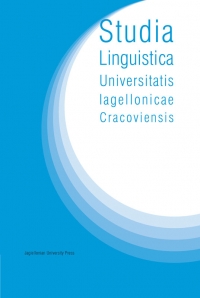Some loose ends in the analysis of the forms ἔθηκε(ν) and θῆκε(ν) in the Iliad: the exceptions, the compounds, the link with Mycenaean and the origin of the augment
Some loose ends in the analysis of the forms ἔθηκε(ν) and θῆκε(ν) in the Iliad: the exceptions, the compounds, the link with Mycenaean and the origin of the augment
Author(s): Filip De DeckerSubject(s): Syntax, Historical Linguistics, Sociolinguistics, Greek Literature
Published by: Wydawnictwo Uniwersytetu Jagiellońskiego
Keywords: epic Greek; Mycenaean; augment; injunctive; historical Greek syntax;
Summary/Abstract: In the final part of the investigation into the use of the (un)augmented 3rd singular forms ἔθηκε(ν) and θῆκε(ν) in the Iliad, I focus on some loose ends, such as the enjambments, the compound forms, the formulaic nature of the epic language, the subordinate and negative sentences, and on some thornier issues such as the exceptions to the rules and the Mycenaean te ke and do ke and what this can tell us about the original meaning and origin of the augment.
Journal: Studia Linguistica Universitatis Iagellonicae Cracoviensis
- Issue Year: 137/2020
- Issue No: 3
- Page Range: 205-221
- Page Count: 17
- Language: English

